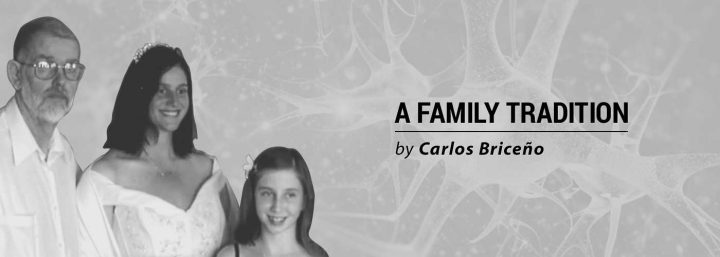Finding the Path that Leads from Feeling Helpless to Hopeful
Written by |

I recently experienced two occasions of complete helplessness.
The first involved my dog, Baby Girl. She has big ears, a normal characteristic of cocker spaniels, which often get infected. The combination of infection and a buildup of earwax sent Baby Girl and me to the veterinarian.
After the appointment, I put Baby Girl in the car, only to realize I had done something incredibly boneheaded: I left the car keys and my cellphone on the seat! The doors were locked, the windows were closed, and the car was hot because it was 85 degrees outside.
I’ll share what happened with Baby Girl in a moment. For now, I want to discuss the second time I felt helpless.
My wife, Jill, is sick as I write this. She has a severe throat infection called tonsillar cellulitus and is having trouble swallowing because it hurts when she tries to eat something solid. She’s sweating from a fever and is so uncomfortable that she is struggling to sleep. In short, Jill is miserable. I can’t make her feel better, no matter what I say or do.
In other words, I feel helpless. Again.
Helplessness is a horrible feeling. It started in earnest last year when Jill was diagnosed with Huntington’s disease. There’s no cure for the illness, and the progressive nature of Huntington’s means that as time goes on, my helplessness as a caregiver will intensify. My first instinct is to make Huntington’s disappear, but I can’t. I don’t know how to come up with a cure. One day, I won’t even be able to make her feel somewhat comfortable.
This brings me back to Baby Girl. As you recall, she was locked inside a hot car. I didn’t have a spare set of keys or my cellphone to call my wife. (We only have one car, so she couldn’t have driven to the vet’s office with the extra set of keys.) I shared my problem with the receptionist, who was about to go on break. She said she’d be happy to drive me home so I could pick up the keys.
I returned to my car and noticed that Baby Girl was panting a lot but wasn’t panicking at all. In fact, she appeared quite serene. It’s like she knew and trusted that I wouldn’t let her die from heat exhaustion. That I would figure out a way to open the doors, turn the air conditioner on, and make her feel better.
There are lessons every caregiver needs to learn about panic and helplessness. You can focus on feeling helpless or you can appreciate the help that’s out there — and, more importantly, trust that people will be there to help when you really need them, whether they’re strangers or friends and family. Someone you love may be suffering, but if you are open to the compassion, love, and empathy in others, you won’t be alone.
Just like Baby Girl waiting patiently for me to return, you can trust that everything will be OK. The world may be sad and difficult at times, but as long as people look after one another, caregiving becomes a team journey.
Thankfully, I no longer feel as helpless.
***
Note: Huntington’s Disease News is strictly a news and information website about the disease. It does not provide medical advice, diagnosis, or treatment. This content is not intended to be a substitute for professional medical advice, diagnosis, or treatment. Always seek the advice of your physician or other qualified health provider with any questions you may have regarding a medical condition. Never disregard professional medical advice or delay in seeking it because of something you have read on this website. The opinions expressed in this column are not those of Huntington’s Disease News or its parent company, Bionews Services, and are intended to spark discussion about issues pertaining to Huntington’s disease.




Leave a comment
Fill in the required fields to post. Your email address will not be published.